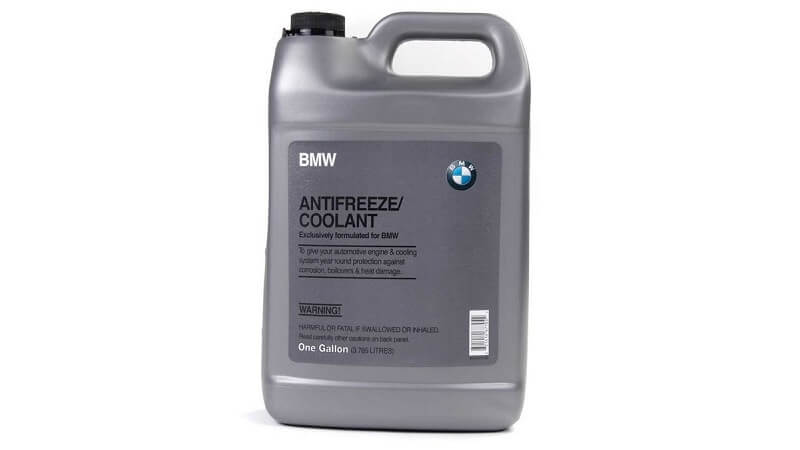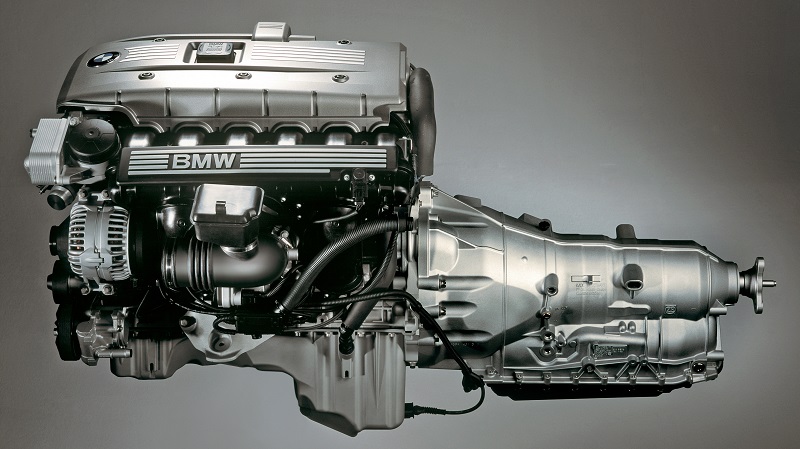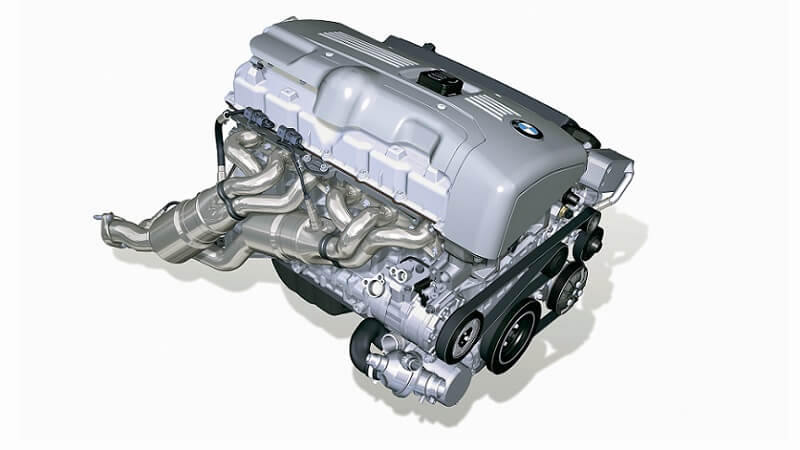Coolants, or antifreeze as it’s sometimes referred to, is a fluid that plays an integral role in regulating the running temperature of your engine. When an engine is running, it produces extreme amounts of heat that, if not managed, can cause catastrophic damage to various parts of the engine.
The cooling system, including the coolant itself, helps manage the amount of heat your engine has to deal with. Not only that, but it also protects the cooling system from long term corrosion. Choosing the right BMW coolant for your car is essential if you want it to run issue-free long term.
BMW Coolant – The Basics
Coolants play a vital role in keeping your engine at an optimum running temperature, and the use of fluids to do so has been followed for decades now. Over the years, the formulation of these fluids has changed as the engines they’re used in have developed, from construction to efficiency.
Modern-day coolants are usually formulated using ethylene glycol, which is where it gets its ‘antifreeze’ name from. Ethylene glycol reduces the freezing point in cold temperatures and increases the boiling point in higher temperatures, making it an excellent chemical to make coolant with.
BMW has taken thing a step further as far as their coolant specs go. The coolant used in BMW engines must not contain any nitrites, amines, phosphates, or borates, as these can severely affect the engine. Complex motors such as B58 or similar, run on tight specs. This includes coolant as well.
What are the Different Types of Coolants?
Before we discuss what kind of coolant is right for your BMW, it’s essential to know the other options and why they won’t suit your car. There are three types of coolant technologies out on the market today — Inorganic Acid Technology (IAT), Organic Acid Technology (OAT), and Hybrid Organic Acid Technology (HOAT).
Inorganic Acid Technology (IAT) Coolants
Inorganic Acid Technology is one of the more primitive formulations of coolant used on a vehicle. However, it is still the recommended choice of fluid for some classic cars with old-school engines. An IAT coolant comprises silicate and phosphate corrosion inhibitors to protect the metal, especially iron, components in an engine and cooling system.
However, modern-day BMW engines use many aluminum parts that can be damaged by an IAT coolant.
IAT coolants are predominantly an ethylene glycol mixture. While it has excellent thermal properties — high boiling temperature and super low freezing temperature — the chemical composition of IAT coolants means that they often lose their properties fairly quickly.
To overcome its shortcomings, manufacturers began to look at other formulations that would work better with newer engines. The result was Organic Acid Technology.
Organic Acid Technology (OAT) Coolants
OAT coolants were made of non-degradable chemicals, overcoming one of IOT coolants’ most significant drawbacks. This meant that they had a longer lifespan and were less resistant to increasing electric conductivity and consequently corrosion as they deteriorated. These coolants were also silicate, borate, and nitrite free.
Unlike IOT coolants that had to be replaced every 2 years, OAT coolants were designed to last around 5 years or about 150,000 miles. However, it’s better to stick to a shorter replacement interval to keep performance at optimum levels.
The most significant advantage that OAT coolants brought was their compatibility with aluminum parts.
On the flip side, these coolants did not come with silicate and phosphate corrosion inhibitors.
Hybrid Organic Acid Technology (HOAT) Coolants
Hybrid Organic Acid Technology is a formulation that combines the best of the previous two types of coolants. It offers the thermal properties of IAT coolants and the anti-corrosion strength of OAT coolants.
This is the recommended BMW coolant and is the only type of formulation you should ever use on your car.
Can You Mix Coolants?
You should never mix two types of coolants. If they are of different formulations, doing so can result in severe, irreversible damage to the engine and cooling system. On paper, mixing a coolant with another one of the same formulations should not be a problem; however, we strongly recommend against doing so to avoid the risk of damage.
Another common misconception is that you can mix two coolants of the same color, but the reality is that’s far from the truth. The color of a coolant is usually the result of a dye and does not indicate a particular coolant technology or formulation.
Genuine BMW Coolant – Pros and Cons
If you’re unsure what coolant your car is currently using, check the owner’s manual to find the correct specification. We recommend using a genuine BMW coolant as it has been specifically designed and developed in close cooperation with the manufacturer. It’s unlikely you’ll find a coolant that prevents damage to the seals, ferrous and non-ferrous surfaces, like a factory-recommended BMW coolant.
The only major downside is that a BMW coolant will typically cost more than an aftermarket option of the same spec. That said, a gallon of coolant will cost you only around $20 and last you a few years, so there’s almost no reason to avoid getting it. BMW coolants are also mostly sold at the dealership, so sourcing it might be a pain if you don’t have one in your area.
BMW coolants are concentrated solutions and should be mixed with distilled water before adding them to your cooling system. The manufacturer typically recommends a 50/50 ratio of coolant and water, but a 60/40 split may offer better protection if you live in colder regions.
Choosing the Right Genuine Coolant for Your BMW
As we recommended above, the best coolant to use for your car is the genuine BMW coolant. Up until 2018, the BMW recommended the G48 coolant. This is a blue-colored coolant and is the most common recommendation you will find online since most cars on the road are compatible with it.
More recently, BMW has switched to recommending the HT-12 coolant over the last few years. This green-colored coolant has been developed specifically to cater to the running conditions of modern-day high-performance engines and is rated to last up to 5 years or over 150,000 miles.
It uses a Si-OAT formulation — an Organic Acid Technology formulation with added silicates — to protect the cooling system components and metals in the engine. The HT-12 coolant is free of phosphates, nitrites, amines, and borates and is even compatible with tap water.
Another critical benefit of HT-12 coolant is that it is backward compatible with older BMW cars from 1988 onwards. You can use HT-12 in any vehicle that was initially filled with G48; however, vehicles that come with HT-12 will not be able to support G48 coolant.
Aftermarket Coolant Pros and Cons
If you can’t immediately get your hands on some OEM BMW coolant, don’t be afraid to use an aftermarket option that you have access to — just make sure that it’s the same formulation as the one recommended for your car. It’s also vital to flush the system of existing coolant before you add the new coolant. Meanwhile, if you have the same coolant as the one already in your car, it’s safe to top it up without flushing the system.
An aftermarket coolant, in most cases, is more affordable than a similar genuine option. Some of the trusted brands include Prestone, Pentosin, and others. Of the three, we recommend picking up your BMW coolant from Pentosin as their blue formulation is a tried and tested product.
Despite the price difference in aftermarket and OEM coolants, we still think you should stick to the latter as those options have been developed alongside the car manufacturer and are the best option.
Are Long Life Coolants Really Long Life?
Long-life coolants, or Extended Life Coolants (ELC), offer a 5-year or 150,000-mile service life protection. Most OAT (Organic Acid Technology) or HOAT (Hybrid Organic Acid Technology) coolants today, including OEM BMW coolants, are extended life coolants. That said, their long lifespan is not an indication that you must replace the coolant only every 5 years or 150,000 miles.
While these coolants are designed to last that long, we recommend sticking to a 2-year or 30,000-mile replacement interval. This way, the fluid in your cooling system is always in prime condition.
Get The Right BMW Coolant
The wrong coolant running through your engine and cooling system can cause severe and irreversible damage — from corrosion and cracking of metal components to deteriorating gaskets and seals. Here at Bimmers.com, we fully understand how the proper coolant is vital in keeping an engine running smoothly at optimal temperatures.
We’ve made it our mission to offer our customers the best BMW coolants. When you select your vehicle using our built-in selection tool, you’ll be presented with genuine OEM and quality aftermarket options that are a guaranteed fit for your BMW.







